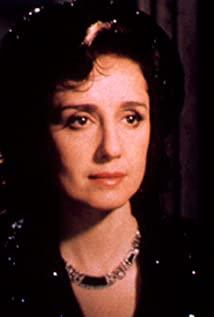Thinking about it, the reasons are probably as follows:
First of all, because he has been living in the nuclear family, he cannot resonate with the Latin American literary family life that runs through the film. The second is that he has little research on European history and religion. He has never read the Bible or read The Golden Bough. Many religious metaphors in the film cannot be obtained, and he admits his ignorance. The last is the persuasive power of the symbolic character of the male protagonist. Are innocence and divinity really the same thing? The actor does have a David face, but at best he shows in the film the image of an innocent little boy with a "good taste" and an "honest face". Without supplementing his acting skills and external appearance, a little boy with a classical appearance and clear eyes is placed in the film. I can see that he is naturally sculpted, but I can't see the most important quality of God - compassion, including his last tears. It seems very deliberate. Understanding the alleged divinity in him may require combining the details of other religious metaphors in the film. At the end, he begged the bank to return the property of the old aristocrat, was mistaken for a robbery with a gun, died under the chaos of the crowd, and the metaphor of the wolf walking through the busy traffic, it can see the director's criticism of modern civilization, conveying a sense of A return to the basics of the worldview. When I saw someone say it was like "The Great Road", I couldn't help but complain. The same big clear eyes, but the meaning is completely different. The female clown played by Julieta impresses the audience the most with her vivid emotions. She can cry, laugh, get angry, and be proud. She is a poor little girl who yearns for love. Her innocence is the beautiful side of human nature. But Lazaro's character design is just the opposite. He has no human emotions, whether he is a modern Jesus or an incarnation of a saint, he lacks a "human" flavor. In fact, this is a very contradictory point. On the one hand, the director wants to create a character with religious metaphors, but on the other hand, the actors show more innocence than compassion, and the characters do not stand up, resulting in unclear expression of the theme. "Lazaro" completely abandoned the dramatic conflict in the play, and brought the trivialities of life to the screen without decoration. I guess the director is trying to achieve the effect of magic realism by combining pseudo-documentary shooting techniques and surreal plots. Of course, there are still bright spots in the film, such as the details of the "auction" work. I don't think it's strange that this film won the best screenplay at Cannes, after all, it's about the culture of Europeans themselves. For me, some films cannot be defined as good or bad, or even if I like them or not. I can only say whether I can understand whether there is resonance or not. In this sense, "Lazaro" is negative.
View more about Happy as Lazzaro reviews










